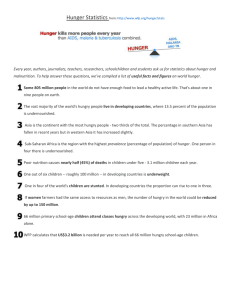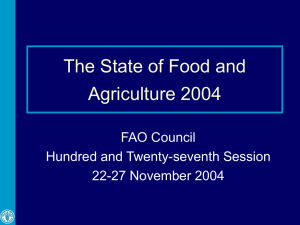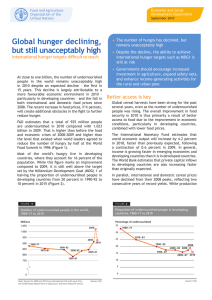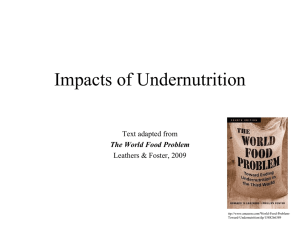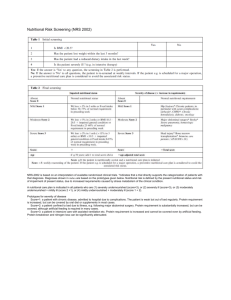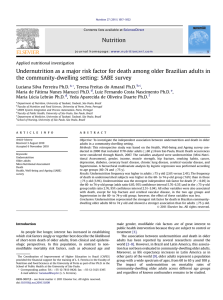this Powerpoint presentation
advertisement
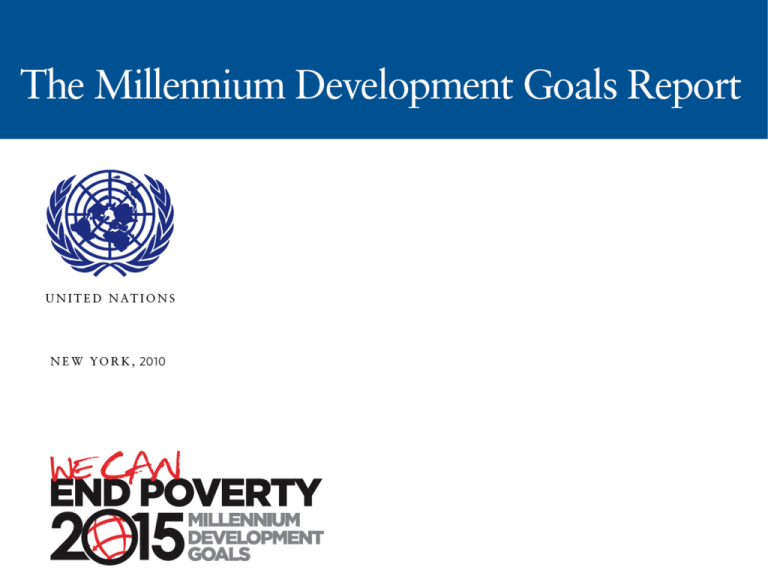
Since 1990, developing regions have made some progress towards the MDG target of halving the proportion of people suffering from hunger. Halving the prevalence of underweight children by 2015 (from a 1990 baseline) will require accelerated and concerted action to scale up interventions that effectively combat undernutrition. Food prices spiked in 2008 and falling income due to the financial crisis further worsened the situation. The Food and Agricultural Organization of the United Nations estimates that the number of people who were undernourished in 2008 maybe as high as 915 million and exceed 1 billion in 2009. Though international food prices continued to decline in the second half of 2008, consumer food price indexes rose. International food prices have not yet stabilized and threats of new food crises loom. The share of undernourished populations decreased from 20 per cent in 1990-1992 to 16 per cent in 2005-2007. Since 1992, progress has slowed. In 2005-2007, the last period assessed, 830 million people were still undernourished, an increase from 817 million in 1990-1992. •Undernutrition among children under five continues to be widely prevalent, due to both a lack of food and lack of quality food, inadequate water, sanitation and health services as well as less than optimal caring and feeding practices. •In all developing regions, children in rural areas are more likely to be underweight than children living in cities and towns. In parts of Asia and in Latin America and the Caribbean, the relative disparity actually increased between 1990 and 2008. UN Secretary General Ban Ki-moon has asked that the Mission 2014 Team be employed to do an emergency review of MDG Target to: half between 1990 and 2015, the proportion of people who suffer from hunger The United Nations must know if this goal is going to be met and if not, why not? What do the specialists of Mission 2014 recommend? You have two weeks to answer this question and report before a panel in class on Monday October 18th in the form of a 30 minute presentation followed by questions But……………… YES!! Team topics are not entirely relevant --you need a plan--new short-term “tiger teams” to go after this And you can’t lose sight of the original problem and teams!! http://www.un.org/millenniumgoals /
